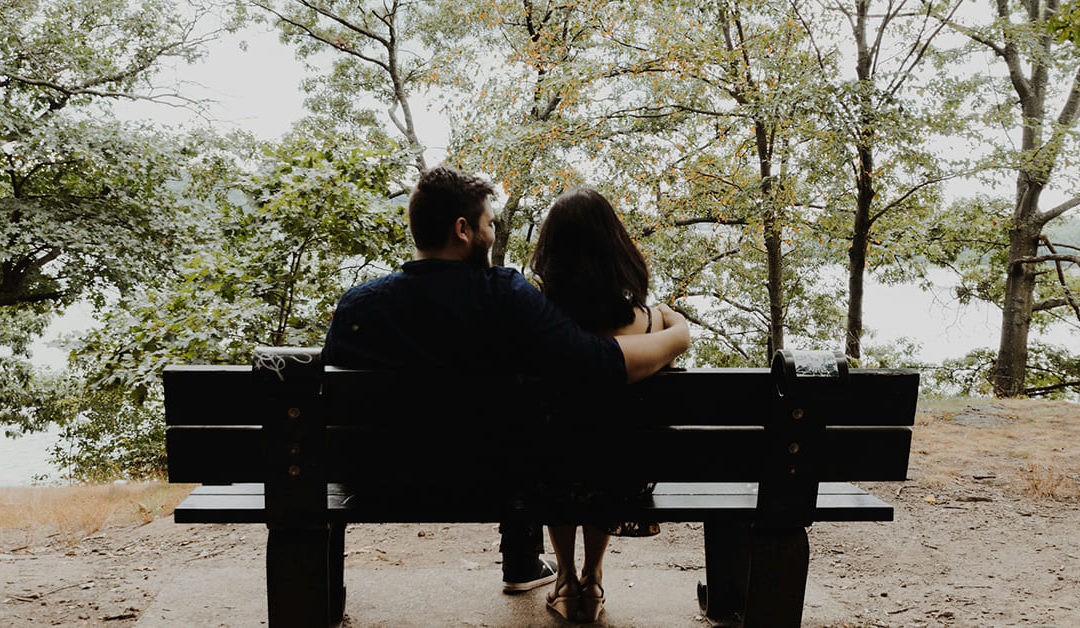Do you ever find yourself saying things you regret? Or reacting to a situation or a person in a way that, deep down, you know is going to make the situation worse? It’s easily done, particularly in situations that are stressful or where there are complicated relationship dynamics. If you are at risk of reacting to something, it generally means you have been triggered or there has been some kind of an intrusion on your boundaries…. and if you can find a way to respond rather than react in anger, you will find that it will strengthen your sense of self and perhaps also your connection with others.
I’m going to take you through some important points on how to respond rather than react to a situation. It’s an essential skill to be able to master, particularly when it comes to relationships.
The art of responding rather than reacting is something that’s a big focus in my work with couples. Often they arrive feeling angry and frustrated that they haven’t been properly heard or acknowledged… and are unaware that their own behaviour can exacerbate rather than improve the situation. In order to have more connected relationships, here are some of the things we work through….
Responding is a skill that you can learn
Skills take time, practice and repetition to master. The first step is gaining knowledge but don’t expect to just be able to do this immediately. If you’re aware that this is a skill that you can develop over time, you can be gentle and patient with yourself as you learn to master it.
Responding means tolerating discomfort
Reacting is often a form of deflecting pain. If a situation or a person has brought you discomfort, it’s tempting to just bat that uncomfortable energy back out into the world, so you don’t have to hold it inside. It takes an act of courage to be able to actually sit with the feeling and to process it, rather than just react to the cause of it. The more you are able to explore what this situation means to you and why it has triggered you, the better you will get at being able to work your your response rather than just go into knee-jerk reactivity
Take your time when in an emotional state
In order to process something, you need to take time. If you are at risk of a reflexive and unprocessed reaction, take a breath to allow yourself to take stock. A conscious and mindful response does not come from fast thinking – that’s a sure way to go into reactivity – instead, you need to mull over options. If you are trying not to react in the context of conversation, you might want to say ‘I need a moment to think about that’ or ‘let me digest my understanding of what you are saying before I respond’… and then give yourself a moment to step back.
In conflict, stay mindful
If, in conversation, you feel that your buttons are being pushed and you are feeling tempted to react, there are tools you can use to help give yourself time and to stop yourself from speaking reflexively. I was taught the practice of pushing my tongue against my two front teeth whilst the other person is speaking! It might sound strange, but it’s a good way of staying conscious in a conversation. The tongue stays still
When in conflict, stay in the present moment
Try to tune in to what is going on, in the present. Often, the triggers that cause us to react take us back into an emotional flashback state, where we are no longer thinking about what is going on, right now, but are instead unconsciously reacting from a pattern of previous trauma or wounding. If you become aware that this is a frequent pattern for you, I would recommend you seek the support of a relationship coach or an equivalent professional, to help you work through patterns that have become stuck.
When you’re feeling triggered get curious
If you find yourself getting triggered into an emotive state, an effective tool is to immediately get curious about what is going on for you. Ask yourself ‘How do I feel about this? Why might I be feeling this way?
Get clarity on your intentions
In order to be able to take control of what happens next, you will want to have full clarity on your position in the situation. Ask yourself: How do I want to respond? What outcome do I want?’ and ‘What response will give me the best chance of getting this outcome?’
Maintain good boundaries
Boundaries are all about taking responsibility for your own thoughts, feelings and actions. So responding, rather than reacting, means having real clarity on what belongs to you and is rightfully in your control and what is nothing to do with you and is out of your control. Your ability to respond (in other words your ‘response-ability’ relies on you being clear on maintaining your boundaries).
Beware of pseudo-issues
A pseudo-issue is defined as something that we think might be the issue but is really only a surface cover up for more challenging issues that we are afraid of admitting to ourselves and afraid of confronting. When you are getting clarity on what the issue is that you are confronting and how you really want to respond, dig deep – you may find that, underneath the surface, there is something that is more painful for you to confront but that will bring real rewards to you if you allow yourself to process it rather than hiding from it.
Use perspective and hindsight
It’s worth looking back at things ‘after the moment’. When you are in a totally calm and reflective state and can have perspective on a situation, you will have sharper clarity around your habits and be able to see how you might want to change the patterns that are no longer serving you.
With time and with practice, you can become a master in this power skill of responding rather than reacting. If you’re curious to learn more about pseudo-issues, you might be interested in watching my video on the subject. I’ve put a link to this video in for you here.
I love sharing my tools, tips and guidance with you and supporting you on your journey to thriving relationships. Please subscribe to my YouTube channel, if you’d like to continue to learn more with me. On my channel you’ll find lots of helpful explanations, tools and tips, which can be of real value for mastering relationship skills.
Wishing you love and tenacity as you become more and more skilled in responding rather than reacting!



